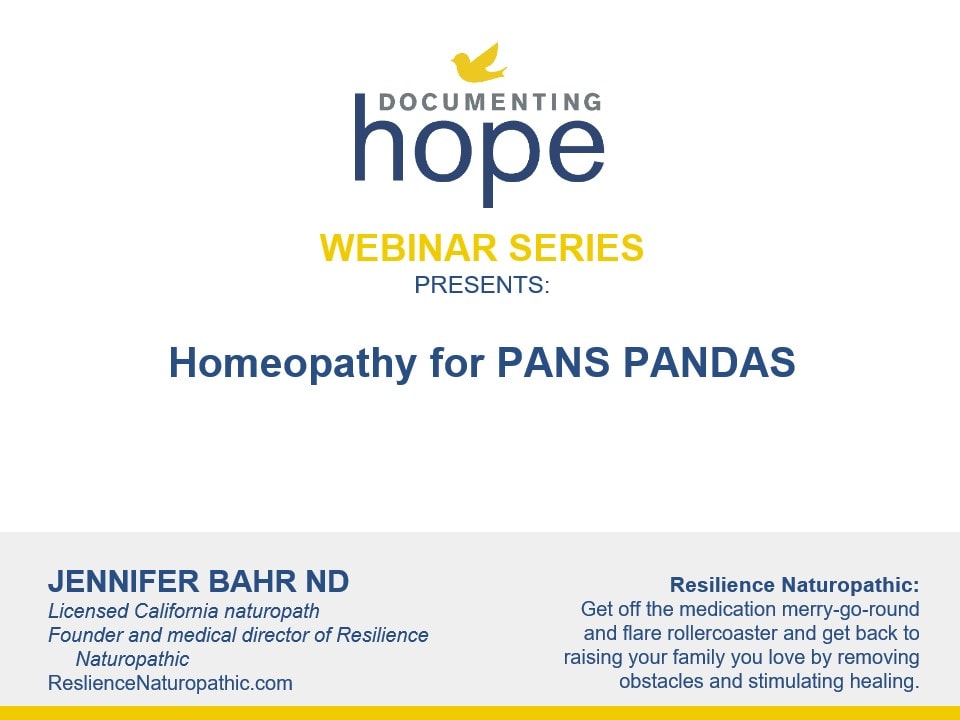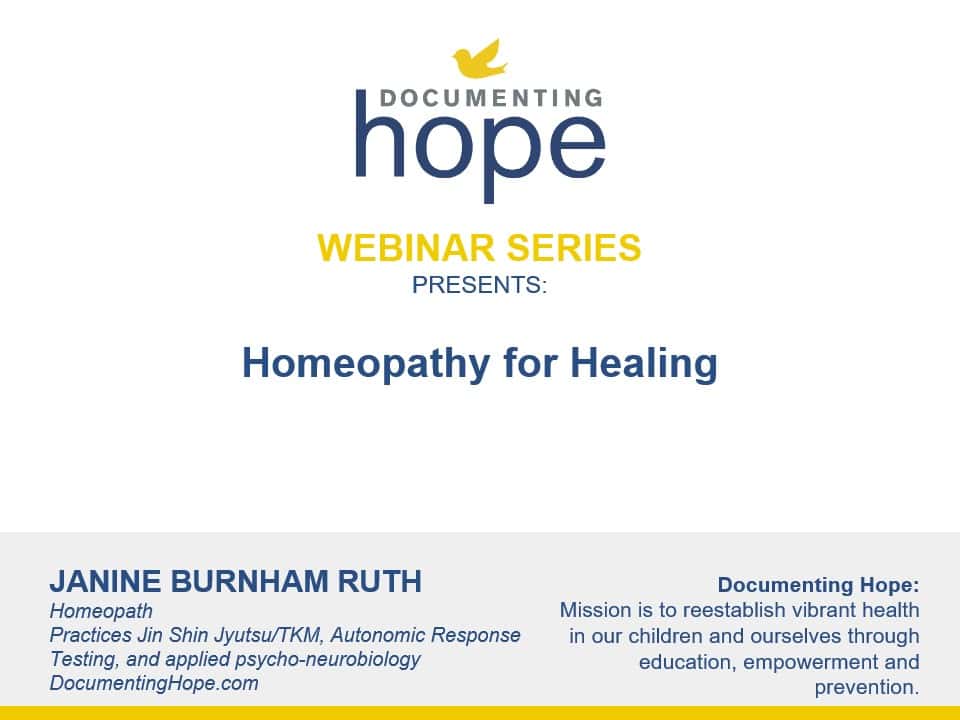In this webinar interview, Stephen Cowan MD took us through the Traditional Chinese Medicine (TCM) framework to understand the link between ADHD and homeopathy. Listen in to the replay below. Please note that you will be asked to enter your email address at the 30-minute mark to finish viewing the video.
ADHD Through the Lens of Traditional Chinese Medicine (TCM)
Within the TCM framework, there are five forces: wood, fire, earth, metal and water. In this webinar, Dr. Cowan discussed five distinct subtypes of ADHD based on this framework:
- The Wood Child is an adventurous explorer who is always on the move but gets frustrated easily
- The Fire Child is outgoing, funny, and can be prone to mood swings and impulsive actions
- The Earth Child is cooperative, peacemaking, but can feel worried or indecisive when stressed
- The Metal Child is comforted by routine, and finds it difficult to shift attention from task to task
- The Water Child is an imaginative dreamer, yet struggles to keep track of time
Why Homeopathy Can Help with ADHD
Each subtype is treated differently with homeopathy, herbs, diet and lifestyle activities that are detailed in his book, Fire Child, Water Child: How Understanding the Five Types of ADHD Can Help You Improve Your Child’s Self-Esteem and Attention.
Homeopathy is a modality that has been used with great success to relieve a wide variety of symptoms, not only for ADHD, but for autism, pain, allergies, fever, rashes and more. It is based on the principle of “like cures like”, meaning that an infinitesimally small amount of a remedy is enough to stimulate the body to use its own healing powers.
By using this personalized approach, you can help your child reduce impulsive behavior, regulate attention, and handle school and home routines with confidence. This approach may also be useful for children with other neurodevelopmental disorders such as autism, learning disabilities, dyslexia, developmental delays, dyspraxia/apraxia and Sensory Processing Disorder.
About Stephen Cowan MD
Stephen Cowan MD is a board-certified pediatrician with over 30 years of clinical experience working with children.
Dr. Cowan has a subspecialty in Developmental Pediatrics and has developed a unique holistic approach to evaluating and treating children struggling with chronic physical, emotional and cognitive disorders.
Considering the child as a reflection of the inter-related forces of family and environment is the central focus of his practice. This approach respects the inseparability of mind, body and spirit and promotes a deeper understanding of what it means to be healthy.

In addition to his practices in Westchester and Manhattan, Dr. Cowan lectures across the United States and internationally. Dr. Cowan is a fellow of the American Academy of Pediatrics. You can find out more about him and his practice at his website DrStephenCowan.com
Disclaimer
This webinar is not a substitute for medical advice, treatment, diagnosis, or consultation with a medical professional. It is intended for general informational purposes only and should not be relied on to make determinations related to treatment of a medical condition. Documenting Hope has not verified and does not guaranty the accuracy of the information provided in this webinar.
Still Looking for Answers?
Visit the Documenting Hope Practitioner Directory to find a practitioner near you.
Join us inside our online membership community for parents, Healing Together, where you’ll find even more healing resources, expert guidance, and a community to support you every step of your child’s healing journey.
Sources & References
Akbarzadeh, R., et al. Low-dose interleukin-2 therapy: a promising targeted therapeutic approach for systemic lupus erythematosus. Curr Opin Rheumatol. 2023 Mar 1;35(2):98-106.
Bell, I.R., et al. Homeopathic medications as clinical alternatives for symptomatic care of acute otitis media and upper respiratory infections in children. Global Adv Health Med. 2013 Jan;2(1):32-43.
Bellavite, P. Homeopathy and integrative medicine: keeping an open mind. J Med Person. 2015;13(1):1-6.
Boehm, K., et al. Homeopathy in the treatment of fibromyalgia--a comprehensive literature-review and meta-analysis. Complement Ther Med. 2014 Aug;22(4):731-42.
Jacobs, J., et al. Homeopathic treatment of acute otitis media in children: a preliminary randomized placebo-controlled trial. Pediatric Infect Dis J. 2001 Feb;20(2):177-83.
Lotti, T., et al. Advances in the treatment options for vitiligo: activated low-dose cytokines-based therapy. Expert Opin Pharmacother. 2015;16(16):2485-96.
Ratheesh, M., et al. Biochemical and immunological aspects of COVID-19 infection and therapeutical intervention of oral low dose cytokine therapy: a systematic review.
Immunopharmacol Immunotoxicol. 2021 Feb;43(1):22-29.
Rodríguez-van Lier, M.E., et al. Intergrative health care method based on combined complementary medical practices: rehabilitative acupuncture, homeopathy and chiropractic. Afr J Tradit Complement Altern Med. 2013 Nov 2;11(1):180-6.
Rossi, E., et al. Homeopathy in paediatric atopic diseases: long-term results in children with atopic dermatitis. Homeopathy. 2012 Jan;101(1):13-20.
Taylor, J.A., et al. Homeopathic Ear Drops as an Adjunct in Reducing Antibiotic Usage in Children With Acute Otitis Media. Global Pediatr Health. 2014 Nov 21;1:2333794X14559395.
von Spee-Mayer, C., et al. Low-dose interleukin-2 selectively corrects regulatory T cell defects in patients with systemic lupus erythematosus. Ann Rheum Dis. 2016 Jul;75(7):1407-15.
Witt, C.M., et al. Homeopathic medical practice: long-term results of a cohort study with 3981 patients. BMC Public Health. 2005 Nov 3;5:115.
Witt, C.M., et al. How healthy are chronically ill patients after eight years of homeopathic treatment?--Results from a long term observational study. BMC Public Health.2008 Dec 17;8:413.
Wu, R., et al. Low-dose Interleukin-2: Biology and therapeutic prospects in rheumatoid arthritis. Autoimmun Rev. 2020 Oct;19(10):102645.
Resources
Books
Cowan, Stephen Scott. Fire Child, Water Child: How Understanding the Five Types of ADHD Can Help You Improve Your Child's Self-Esteem and Attention. New Harbinger Publications, 2012.
Dean, Carolyn. Homeopathic Remedies for Children's Common Ailments. Keats Publishing, 1995.
Herscu, Paul. The Homeopathic Treatment of Children: Pediatric Constitutional Types. North Atlantic Books, 1991.
Herscu, Paul. Stramonium: With an Introduction to Analysis Using Cycles & Segments. New England School of Homeopathy Press, 1996.
Reichenberg-Ullman, Judyth, et al. A Drug-Free Approach to Asperger Syndrome and Autism: Homeopathic Care for Exceptional Kids. Prima Publishing, 1996.
Reichenberg-Ullman, Judyth, et al. Ritalin-Free Kids: Safe and Effective Homeopathic Medicine for ADHD and Other Behavioral and Learning Problems.




